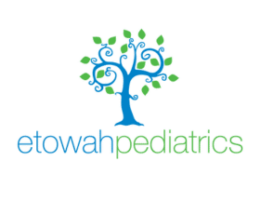During feedings your baby receives nourishment for growth and brain development. Whether you have chosen to breastfeed or bottle feed this is also a cherished time for you and your baby to learn about one another and a wonderful opportunity for warmth, closeness, and a sense of security to develop.
In the first months of life breast milk or infant formula will be your baby’s primary food and should be continued until the first birthday .Babies quickly learn to establish rhythms for feeding. Most healthy babies are fed “on demand” initially. As they grow usually feedings will be every three to four hours.
Breastfeeding
Breast milk not only provides the nourishment necessary for an infant but also is the ideal food for the developing digestive system. Breast milk offers built-in protection against some infections a baby may be exposed to during the weeks after birth.
Good nutrition and adequate hydration are important while breastfeeding. It is also important to know that what you consume may be passed to your baby through breast milk. Taking prescription medications needs to be discussed both with your doctor and your pediatrician.
The American Academy of Pediatrics recommends that babies who are strictly breastfed take a daily Vitamin D supplement.
There are great lactation nurses at all of our local hospitals who are available after you go home to help you with any problems that may arise.
Formula Feeding
There are many infant formulas that have been shown to support the growth and development of your baby. Choosing a formula with such a broad range of options on the menu may be confusing.
Most babies will do fine with a cow’s milk based formula. You may want to choose a soy based formula if your baby seems intolerant to cow’s milk. Some babies however may be truly allergic to cow’s milk. In this case your doctor will likely recommend a hypoallergenic protein hydrolysate or elemental formula.
Most formulas come in ready-to-feed, liquid concentrate and powder. Ready to feed is easy but may be heavy to carry around and generally is more expensive.
When mixing formula always follow the instructions for preparation and storage of the baby’s formula exactly as written on the can. Unopened ready-to-feed infant formula that has been stored at room temperature need not be warmed. Prepared formula that has been refrigerated should have the caps loosened and warmed in a bowl of warm water. Microwave ovens should not be used for heating a formula due to the uneven nature of the heating. The temperature of the heated formula should be tested before offering to a baby by letting a few drops of formula fall on the inner side of your wrists; it should feel warm, not hot. If a baby does not finish a bottle of formula at feeding, the remainder of the formula should be thrown away.
Do not give your baby a bottle while lying down or with it propped. Young infants may choke with a bottle and are unable to help themselves by pushing the bottle away. As he/she gets older; a baby who takes a bottle while lying down is more prone to ear infections. After teeth erupt the baby is more likely to suffer tooth decay.
When your child is 12 months old we recommend switching to whole milk. There are commercially available “transition” formulas marketed for the 9-24 month olds. However if your child is getting a well balanced diet regular milk is sufficient and much more economical.
See our section on Burping.
